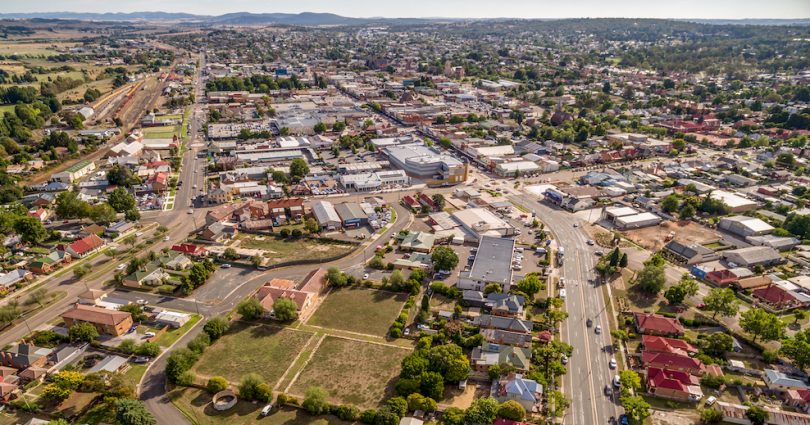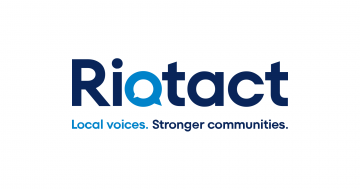
The COVID-19 pandemic has made addressing homelessness, housing affordability and housing insecurity even more urgent. Photo: File.
Rough sleeping needs an immediate solution – to protect individuals and to support our public health response to COVID-19. We all know the importance of self-isolation and for people to stay at home as much as possible through the crisis. This is clearly impossible if you don’t have a safe home to go to.
As our streets have emptied, the people with nowhere to go have become even more visible.
Volunteer-led service Safe Shelter, which has stepped in to fill the gap in emergency accommodation on winter nights in recent years, has found that the COVID-19 pandemic means that it is impossible for them to provide services in a manner that is safe for either clients or volunteers. It’s a gap that the Government must now fill.
We are in a fortunate position in the ACT of having a relatively small proportion of rough sleepers – this is an issue we can solve. Other jurisdictions have used motels and other accommodation that has become vacant due to the pandemic.
There are good options available to support people who need somewhere safe to go during this crisis.
However, we also need to recognise and respond to the reality that many people who are sleeping rough have significant mental health issues and may struggle to take up options offered. It’s reassuring to know that the ACT Government is working with homelessness services to work out how to provide services through the pandemic and it is vital that this group moves swiftly to support the people who are most vulnerable through this crisis.
The crisis brings the much broader issue of housing affordability into sharp relief. We know that even prior to the crisis, private rents in the ACT were among the highest in the nation. There is nowhere more expensive to rent a home, and we are only second to Sydney when it comes to renting a unit.
With many people now underemployed or unemployed due to COVID-19, this is a priority issue that is more vital to deal with here in the ACT than almost anywhere else.
Last week came the welcome announcement from the National Cabinet that there would be an Australia-wide moratorium on evictions. It is imperative that this is implemented swiftly to ensure people are not rendered homeless because of vastly changed circumstances.
The ACT Government has also announced measures including a rates rebate to landlords of residential properties who reduce rents by at least 25 per cent for tenants impacted by COVID-19. The rebate will be equal to 50 percent of the rent reduction, capped at $1,300 per quarter for the landlord (around $100 per week), reducing rents by up to $200 per week, for up to six months.
These changes should make a real difference to both tenants and landlords, and we need to recognise that this crisis has created challenges for many people in both these groups. This model sees government, tenants and landlords each share a part of the pandemic cost, but it does rely on landlords to be willing to make the offer and help their tenants in a time of need.
COVID-19 has changed our world significantly and rapidly. Across the globe, incomes and investments have and will continue to be severely impacted. It is inconceivable to imagine that local rental returns will be immune to this global crisis.
Those on the JobSeeker payment and paying the median rental rate will be in significant housing stress, even with current rebates that have been announced. Because of our relative affluence, the experience of poverty in the ACT has always been particularly tough here and this is likely to be even more of an issue during this period.
Given this, if we want people to be able to find affordable rental accommodation moving forward, rent increases that were common prior to the crisis cannot continue to be the norm. Rents should be going down, not up. At minimum, we need to pass laws to ensure no rental increases during this period when so many are in significant financial stress.
Across Australia, there have been disturbing reports of the interaction between tenants and real estate agents. This has included reports of real estate agents advising tenants to dip into their superannuation to pay rent (something that the Australian Securities and Investments Commission has noted is illegal), notification that if rent is not paid due to this crisis there will still be large debts that will be pursued after the crisis has past and threats of the impact of nonpayment on ongoing rental records. This is very different from the reported approaches of banks towards mortgagees. There is a need to ensure that approaches are compassionate and responsive to the particular issues that this crisis has created.
We also need to be crystal clear that anyone seeking to profit from government packages, rather than passing on government stimulus and support package measures to tenants, is behaving unconscionably and breaking the law. We need to swiftly implement a compliance regime, as well as providing more support for tenants’ advocacy bodies to enable them to protect the tenants’ rights.
The reality is that through this crisis there will still be people who need to leave their current accommodation for a range of reasons. Already there have been people who have needed to self-isolate who have found their accommodation unsuitable for this purpose. There will also be a need for a range of affordable options for people who are in very different financial circumstances to the ones they were previously in. The market is unlikely to fully meet this need, and Government will need to step in to ensure that individuals and the community are safe, and people have a roof over their heads during this unsettling time.
This crisis has once again exposed the inequalities inherent in our community.
Once we solve the immediate challenge of ensuring everyone has access to secure and affordable housing through this period, we need to look at how we build a better housing system in the wake of this crisis. Any recovery effort must include significant investment in new social and affordable housing infrastructure to ensure that our housing stock delivers homes to people that are safe, affordable and secure. Hopefully, we will build a better normal out of this crisis and guarantee affordable housing to everyone who needs it.
What are your ideas about how we deal with the issues of homelessness, and affordable and secure housing during the COVID-19 pandemic?
Rebecca Vassarotti is an ACT Greens candidate in the upcoming Territory election.




















